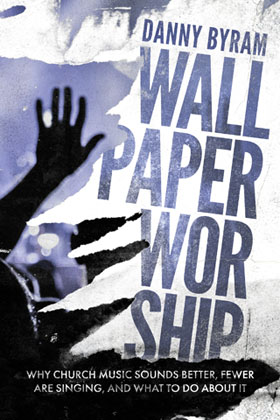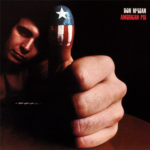Song “Righting”

As a songwriter, I have subscriptions to online periodicals that keep me updated on what’s going on in the songwriting and recording industries. One publication sends out a monthly notice of recording artists and companies looking for new song material of all genres. Recently a request came through that caught my eye. It was for a group looking for new songs for their upcoming Christian recording. The description of the kind of song they are looking for read: “Uplifting Christian with solid beat. Lyrics must not contain Bible references or Jesus or God.”
My first thought was this cannot be serious. That’s like asking for love songs that don’t mention love. Then, other thoughts emerged: do consumers of “uplifting Christian music” understand a phrase like that as self-contradicting? Do Christian consumers know this is going on prior to the release of what they are hearing played on the radio?
After attending a local megachurch service, I evaluated the songs performed by the band on the platform. There were songs that spoke clearly of Jesus and contained direct scriptural phraseology. There were also songs that could have been used in any context, with any religion that professes a positive tone (Buddhist, Baha’i, Shinto). The lyrics were uplifting, the beat was “solid,” but no reference to anything that was exclusively Christian.
Those of us who grew up in the origins of what became known as Contemporary Christian Music remember well when Christian music started receiving secular radio airplay. Most of those songs that passed the “airplay audition” were toned down in religious-speak to give a positive message with a veiled Christian meaning, so as to gain access to a wider audience. At the time, some staunch consumers of Christian music were offended, boycotting artists who released such songs. But the industry’s purpose was accomplished: put Contemporary Christian Music into the mainstream marketplace and let the listeners decide if it’s acceptable.
Today there is a much more specialized genre within Christian music: Worship. This genre title supposedly denotes songs that speak of one’s intimate response to the Object of Worship, namely God the Father, God the Son, God the Holy Spirit. To call a song a “worship song” implies perhaps that it has more substance than simply a song about love and grace, albeit God’s love and grace. A “worship song” categorically qualifies lyrically to be used within corporate worship contexts by its: a) declaration of God’s works or attributes (News Flash: we get those in the Bible); b) response of humankind to His works or attributes; or c) ability to express devotional reflection of how His unique attributes, works, and divine Self (yes, it’s a good idea to name Who we are worshiping) has transformed one’s life.
When songs presented in a worship service possess no lyrical references to God, Jesus or scripture, is it fair to assess, sweet as the song may be, that it may not qualify to be called “Christian” much less “Worship?” There is a lot of good music out there – and a lot of uplifting songs in many popular genres, and many that are written by songwriters who happen to be Christians. God bless them! Yet, those who lead crowds from church platforms would shepherd their sheep well to be careful in choosing songs that are worthy of being used within a worship context. Everything called “Christian” may not necessarily be; everything called “Worship,” ditto.








Thank you Danny. I attend a small congregation in Boise, Idaho. Our music in our worship services consists of old, traditional hymns with the accompaniment of piano and organ, with an occasional solo performance by one of our members. I love them and I lead them. However, I would like to improve the worship music with the introduction of songs like those you sing. I need some help. Thanks.
Hi Michael. Hope you received my reply from my email. If not, just let me know what songs you are needing.
Blessings!
DB